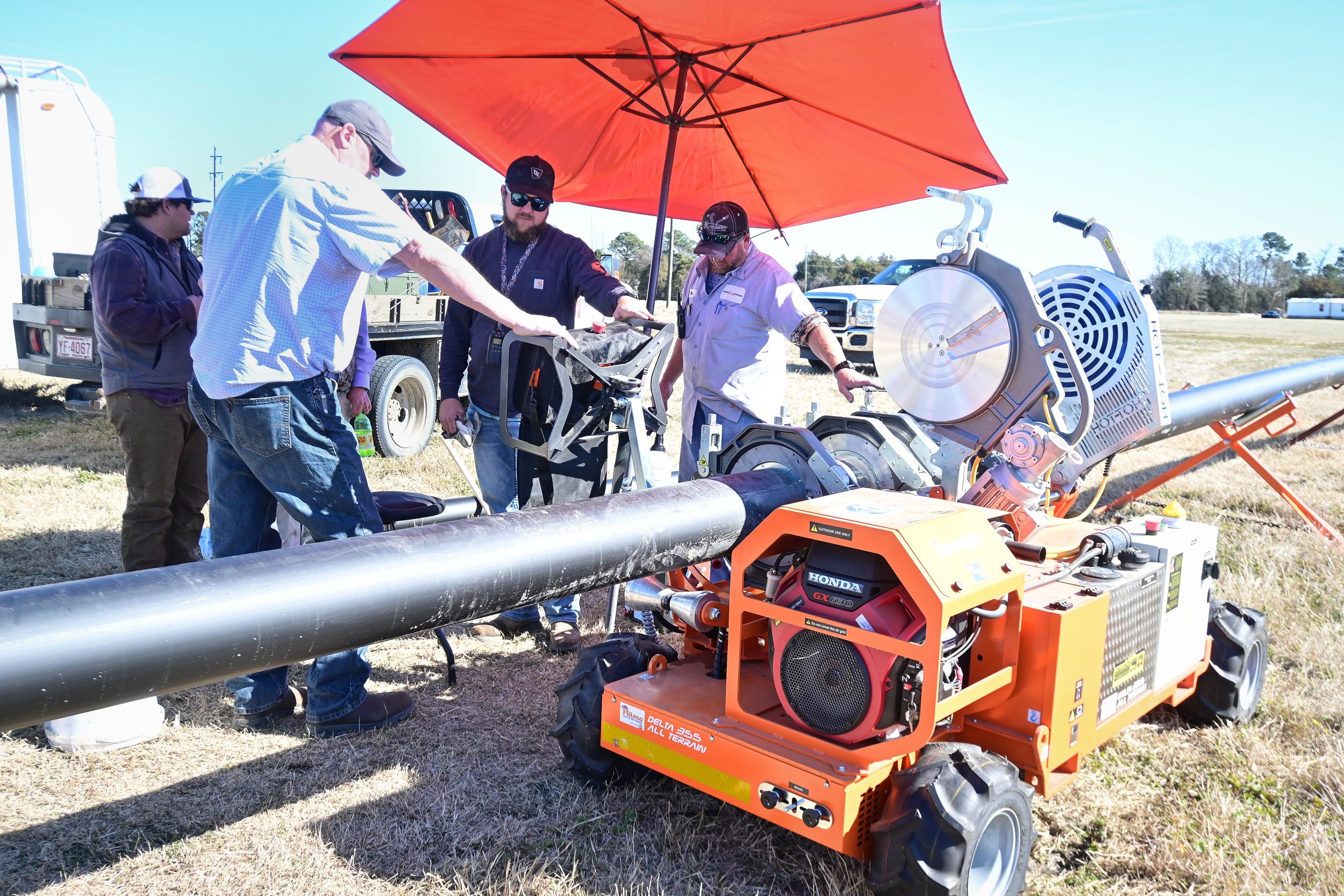MFV Joins the fight to produce more clean energy
MFV employees training on the butt fushion machine that is used to mold together pipes
Our MFV farms are now participating in a renewable natural gas project (RNG) through a partnership with Align Renewable Natural Gas. RNG, sometimes referred to as biogas, is a pipeline-quality gas that is fully interchangeable with your everyday conventional natural gas. It is a renewable or “green” energy source similar to other sources such as solar, wind, and hydroelectric dams. Since solar panels have been popping up all over the houses in our communities, many people are familiar with these sources; but what people don’t always know is that it can also come from farms and food waste.
Aerial shot of Forest Oak Farm in Missouri
I know you are wondering how you can turn hog manure into clean energy. It is a simple three-step process. Our farmers will capture and store the methane, which is naturally released from the digestion of hog manure, in covered digesters outside of their barns. These digestors are sealed tight to ensure that there are no methane leaks. The biogas is then transported to a central conditioning facility in the area where the methane is conditioned to a level of 99% pure methane. This is the same percentage as your traditional natural gas. Once this process is complete, the RNG is then distributed to systems to serve local homes and businesses.
Take a look at this visual representation of the renewable natural gas conditioning process.
There are many benefits to using renewable natural gas. It reduces emissions, produces clean energy, and provides new income for farmers and their families. Align RNG will reduce greenhouse gas emissions by the same amount as planting 2.7 million trees. RNG projects allow our farmers to not only diversify farm operations but to also turn one of our largest cost drivers, manure management, into a new revenue stream. Dominion Energy’s goal is to achieve net-zero greenhouse gas emissions by 2050, and Smithfield Foods has a goal to become carbon negative by 2030. This project helps move that goal in the right direction. In addition to long-term economic growth for our farms, it promotes collaboration across industries. It’s exciting to contribute to another important industry, energy, and we get to play a new role by helping to power homes and businesses in our communities.
MFV purchased a butt fusion machine that uses something called a thermofusion process to heat the ends of two pipes simultaneously into a molten state. This machine is needed to mold pipes together that will be used to transport feedstock to and decant from the digesters. Purchasing the butt fusion machine allows MFV to do this process in-house instead of contracting it out. Because of that, MFV farm workers involved with the project are educated on the process of creating RNG, and they will also be able to enhance their knowledge and learn a new skill set so it benefits our workers as well.
Butt fushion machine
Work on the project began in the summer of 2019. Currently, the 1st phase of the project has 7 farms participating in the program. That represents almost 45,000 market hog spaces.
The planning, budgeting, permitting, and procurement process was completed in late 2021, which was when the actual groundwork began. We expect to commission the first project during mid to late summer of 2022.
Here are a few more photos of our project and a word from our Senior Vice President and Director of Operations.
“Simply stated, the project is a renewable fuel initiative. In the construction of anaerobic digestors, the project has the environmental benefit of capturing the value of the renewable energy generated from the manure, while also retaining the nutrient value of the swine manure as organic fertilizer.”













